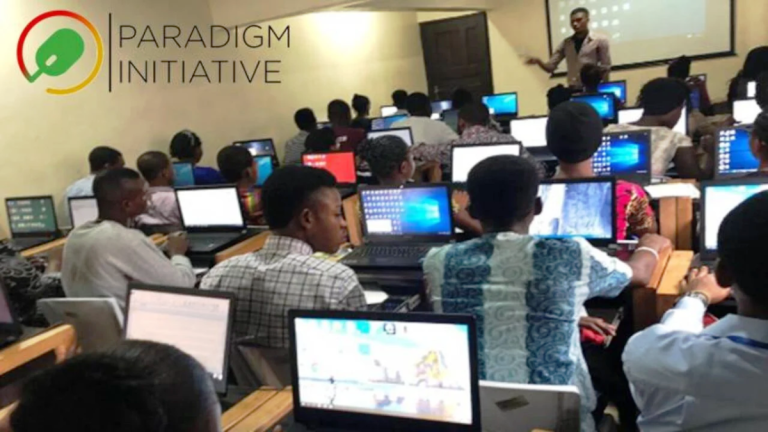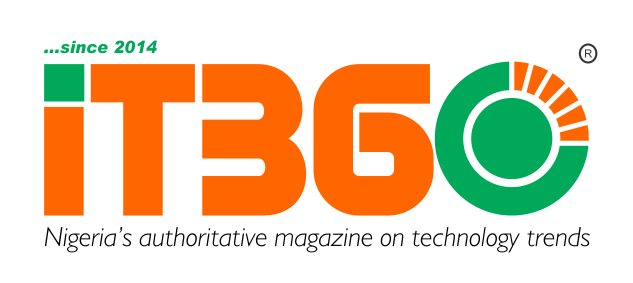Leading Pan African Digital Rights and Inclusion organization, Paradigm Initiative (PIN) today marks 15 years of impacting the lives of more than 5,000 under-served African youth with improved livelihoods through digital opportunities and the protection of their online rights.
PIN has for more than eight years played an instrumental role in advancing Internet Freedom, proposing policy solutions and monitoring legal and policy framework around Information Communication Technology (ICTs) on the continent to ensure citizen rights.

This contribution has been strengthened by the organization’s competencies in ICT capacity building, research and reports.
The organization has also trained a considerable number of non-profit organizations and educational institutions on the usage of ICTs for digital security, and online and social media advocacy through its annual digital rights reports which have been converted into short films to speak more to the younger audience.
This milestone is being commemorated through a raft of activities starting with a dinner and awards ceremony which will be held later today in Lagos, Nigeria. At the dinner event, PIN will honor individuals, stakeholders and partner organizations that have contributed to the success of its mission. The event will further provide a platform to hold open discussions about PIN’s journey and testimonials.
PIN, which has regional offices in Cameroon, Kenya, Nigeria, Senegal, Zambia and Zimbabwe is also organizing a debate competition which will allow young Africans to either support or oppose the topic, ‘Are the Social and cultural norms in Africa impeding the realization of digital rights and inclusion?’ From a pool of 321 entries (249 English and 72 French), eight contestants from Benin, Côte d’Ivoire, Cameroon, Eswatini, Malawi and Nigeria have been shortlisted to compete for the semi-finals (second round).
The final winner (both French and English categories) will be announced during the PIN Festival which will be held in Harare, Zimbabwe between October 10th and 14th, 2022.
The festival is a celebration of the collective effort that has gone on behind the scenes to advance digital rights and inclusion in Africa over the years. During the festival in Harare, PIN will highlight its work and the impact the organization has achieved through collaborations.
Speaking ahead of the celebrations, Mr. Gbenga Sesan, Paradigm Initiative Executive Director, reaffirmed the organization’s commitment towards digital inclusion and digital skills upscaling, adding that program beneficiaries are currently enjoying better quality lives and have more internet freedom with increased awareness of their online rights.
This has mainly been achieved through the organization’s flagship program- Digital Inclusion which includes Life Skills, ICTs, Financial Literacy and Entrepreneurship training (LIFE), Digital Readiness Program for Girls and a software engineering school, Dufuna which targets high potential young Africans who are tech-driven.
The Digital Inclusion program has grown in leaps and bounds, having started in a community in Ajegunle, Lagos State, South Western Region of Nigeria. Today, the LIFE program is being implemented in Senegal and three regions in Nigeria namely South-West, South-East and North-West Region.
Working in partnership with organizations such as Mentor an Africa Child Initiative, Startup Kebbi, and Youth and Women Empowerment Centre (YOWEC), the LIFE program has since expanded into Ogun, Kebbi and Rivers States.
The program has also been rolled out in secondary schools under the auspices of LIFE@Schools Clubs.
Under the technology club, students are trained weekly using the same curriculum as the LIFE program in the process of upscaling their digital skills. At the advent of the Coronavirus Pandemic (COVID-19) in 2020, PIN introduced virtual version of the LIFE training program which has enabled the organization to train young people in 12 African countries namely; Cameroon, Côte d’Ivoire, Gambia, Ghana, Kenya, Liberia, Nigeria, Senegal, South Sudan, Tanzania, Uganda and Zimbabwe.

